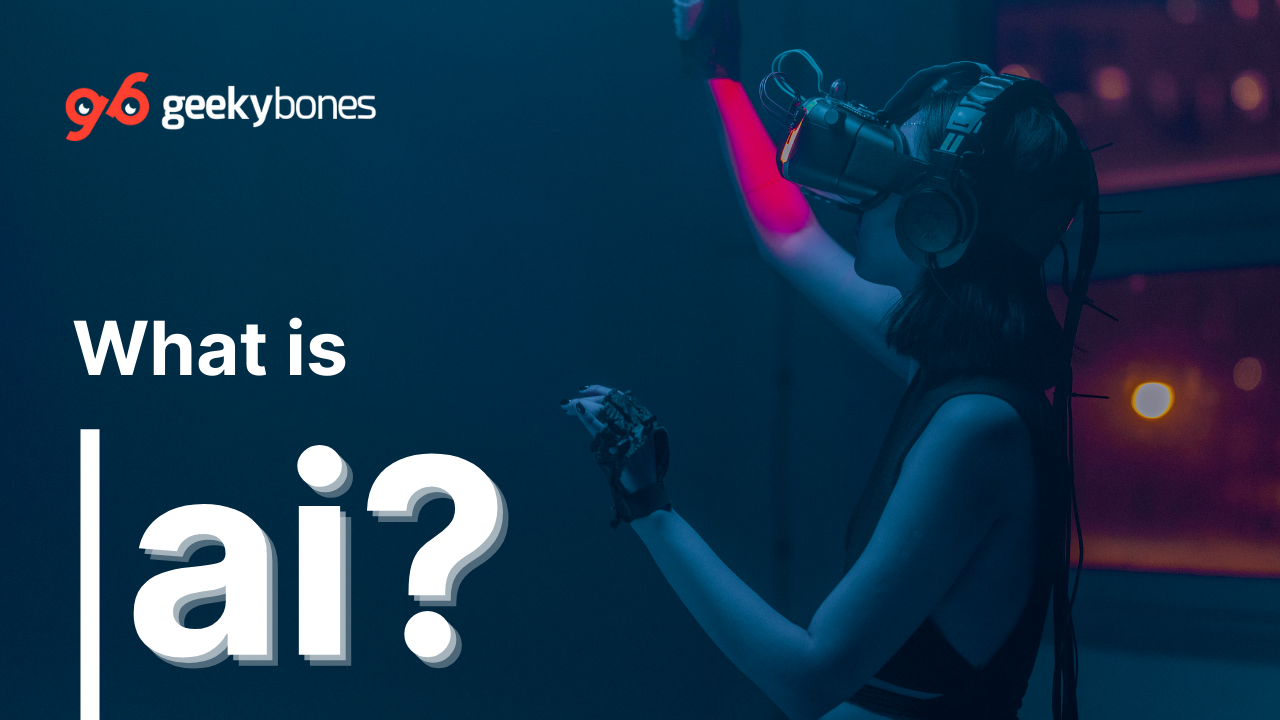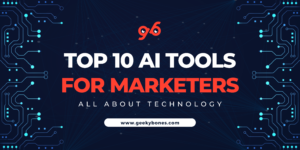Introduction
Artificial Intelligence, or AI, is not just a futuristic concept but a present reality that’s transforming various sectors around us. From healthcare to finance, AI is making its mark, driving efficiency, and opening up new possibilities. But what exactly is Artificial Intelligence, and why is it so important? Let’s delve into the world of AI and uncover its wonders.
What is Artificial Intelligence?
Definition of AI
Artificial Intelligence refers to the simulation of human intelligence in machines that are programmed to think and learn. These intelligent systems can perform tasks that typically require human intelligence, such as problem-solving, learning, and understanding natural language.
History of AI
The journey of AI began in the mid-20th century with pioneers like Alan Turing, who questioned whether machines could think. The development of AI has gone through various phases, from symbolic AI in the 1950s to the rise of machine learning and deep learning in recent decades.
Types of AI
AI can be categorized into three types: Narrow AI, General AI, and Super AI. Narrow AI is designed to perform specific tasks, such as facial recognition or language translation. General AI, still theoretical, would possess the ability to understand, learn, and apply knowledge across a wide range of tasks. Super AI, also hypothetical, would surpass human intelligence.
Applications of Artificial Intelligence
AI in Healthcare
AI is revolutionizing healthcare by enabling faster and more accurate diagnoses, personalized treatment plans, and advanced research. For example, AI algorithms can analyze medical images to detect diseases at an early stage, potentially saving lives.
AI is also being used to streamline administrative tasks in healthcare. For instance, AI-powered chatbots can handle scheduling and patient inquiries, allowing healthcare professionals to focus more on patient care. Moreover, AI’s ability to analyze large datasets quickly is accelerating drug discovery and development, leading to more effective treatments and therapies.
AI in Finance
In the finance sector, AI is enhancing fraud detection, risk management, and customer service. AI-powered chatbots provide instant assistance to customers, while machine learning algorithms predict market trends, aiding in investment decisions.
Additionally, AI is optimizing financial operations by automating routine tasks such as data entry and transaction processing. This not only reduces the risk of human error but also increases efficiency and productivity. AI’s predictive analytics capabilities are also helping financial institutions to better manage risks and make more informed decisions.
AI in Retail
Retailers are leveraging AI to improve customer experiences through personalized recommendations, efficient inventory management, and optimized pricing strategies. AI-driven analytics help retailers understand consumer behavior and tailor their offerings accordingly.
AI-powered chatbots and virtual assistants are enhancing customer service by providing instant responses to inquiries and personalized shopping experiences. Furthermore, AI is being used to optimize supply chain operations, ensuring that products are available when and where they are needed, reducing costs, and increasing customer satisfaction.
AI in Transportation
AI is at the forefront of transforming transportation with the development of autonomous vehicles, traffic management systems, and predictive maintenance. These advancements promise safer, more efficient, and environmentally friendly transportation solutions.
Self-driving cars, for instance, use AI to navigate and make real-time decisions, reducing the risk of human error and accidents. AI-powered traffic management systems can analyze traffic patterns and optimize traffic flow, reducing congestion and travel times. Additionally, AI is being used to monitor the condition of transportation infrastructure and predict maintenance needs, ensuring safety and reliability.
AI in Education
In education, AI is personalizing learning experiences, automating administrative tasks, and providing intelligent tutoring systems. These innovations help educators better understand student needs and enhance the overall learning experience.
AI-powered educational platforms can adapt to individual learning styles and paces, providing personalized content and feedback. This ensures that students receive the support they need to succeed. AI is also being used to streamline administrative tasks such as grading and attendance tracking, allowing educators to focus more on teaching and mentoring.
Benefits of Artificial Intelligence
Efficiency and Productivity
One of the primary benefits of AI is its ability to boost efficiency and productivity. AI systems can process vast amounts of data quickly and accurately, freeing up human workers to focus on more complex and creative tasks.
In manufacturing, for instance, AI-powered robots can work alongside humans to increase production speed and precision. In customer service, AI chatbots can handle routine inquiries, allowing human agents to focus on more complex issues. Overall, AI’s ability to automate repetitive tasks and optimize processes is driving significant gains in efficiency and productivity across various industries.
Enhanced Decision Making
AI enhances decision-making by providing data-driven insights and predictions. Businesses can make informed decisions based on AI analytics, leading to improved outcomes and competitive advantage.
AI-powered analytics tools can analyze vast amounts of data from multiple sources, identifying patterns and trends that humans might miss. This enables businesses to make more informed decisions, from marketing strategies to operational improvements. AI’s predictive capabilities also allow businesses to anticipate future trends and prepare accordingly.
Personalization
AI enables personalization at scale, tailoring products, services, and content to individual preferences. This level of customization enhances customer satisfaction and loyalty.
In the retail industry, for example, AI can analyze customer data to provide personalized product recommendations and offers. In healthcare, AI can create personalized treatment plans based on a patient’s medical history and genetic information. This level of personalization not only improves customer and patient experiences but also drives better outcomes.
Challenges of Artificial Intelligence
Ethical Concerns
The rise of AI brings several ethical concerns, such as data privacy, algorithmic bias, and the potential misuse of AI technology. Addressing these issues requires robust ethical frameworks and regulations.
AI systems can sometimes exhibit biases that reflect the data they were trained on, leading to unfair or discriminatory outcomes. Ensuring that AI systems are transparent and fair is crucial. Additionally, the use of AI in surveillance and decision-making raises privacy concerns. Developing ethical guidelines and regulatory frameworks is essential to ensure that AI is used responsibly and ethically.
Job Displacement
AI’s ability to automate tasks raises concerns about job displacement. While AI creates new job opportunities, it also renders some roles obsolete, necessitating reskilling and upskilling of the workforce.
Certain routine and repetitive jobs are at risk of being automated, leading to job losses in those areas. However, AI is also creating new job opportunities in fields such as AI development, data analysis, and AI ethics. Preparing the workforce for these changes through reskilling and upskilling programs is crucial to mitigate the impact of job displacement.
Security Risks
AI systems are not immune to security risks, including data breaches and adversarial attacks. Ensuring the security of AI systems is crucial to prevent misuse and protect sensitive information.
AI systems can be vulnerable to attacks that manipulate the data they rely on, leading to incorrect decisions or outcomes. Protecting AI systems from such attacks requires robust security measures and ongoing monitoring. Additionally, ensuring that AI systems comply with data protection regulations is essential to protect user privacy.
The Future of Artificial Intelligence
AI in Everyday Life
AI is becoming an integral part of our daily lives, from virtual assistants and smart home devices to personalized entertainment and shopping experiences. Its influence is set to grow, making our lives more convenient and connected.
Virtual assistants like Siri and Alexa are becoming increasingly sophisticated, providing more personalized and intuitive interactions. Smart home devices are automating tasks such as lighting, heating, and security, making our homes more efficient and comfortable. AI-powered recommendation systems are enhancing our entertainment and shopping experiences by providing personalized content and product suggestions.
Innovations on the Horizon
Future innovations in AI include advancements in natural language processing, robotics, and autonomous systems. These developments will further integrate AI into various aspects of life and industry.
Advances in natural language processing will enable more natural and intuitive interactions with AI systems, making them more accessible and useful. Developments in robotics will lead to more sophisticated and versatile robots that can perform a wider range of tasks. Autonomous systems, such as self-driving cars and drones, will become more prevalent, transforming transportation and logistics.
The Role of AI in Society
AI has the potential to address some of society’s biggest challenges, such as climate change, healthcare, and education. However, its impact will depend on how it is developed and deployed, emphasizing the need for responsible AI practices.
AI can help address climate change by optimizing energy usage, predicting weather patterns, and managing natural resources. In healthcare, AI can improve access to care, enhance diagnostics, and accelerate medical research. In education, AI can provide personalized learning experiences and support teachers. However, the benefits of AI will only be realized if it is developed and deployed responsibly, with a focus on ethical and inclusive practices.
Conclusion
Artificial Intelligence is transforming the world around us, driving innovation, and opening new possibilities. From healthcare to finance, AI is enhancing efficiency and enabling new capabilities. As we continue to explore and develop AI, staying informed about its trends and implications is crucial. The future of AI holds immense potential, and how we harness it will shape the world for generations to come.




